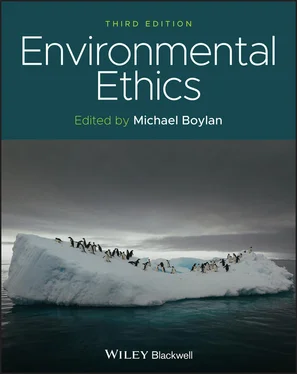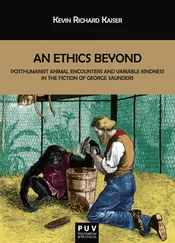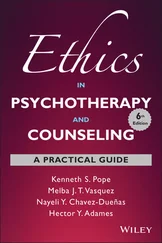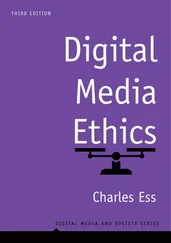Environmental Ethics
Здесь есть возможность читать онлайн «Environmental Ethics» — ознакомительный отрывок электронной книги совершенно бесплатно, а после прочтения отрывка купить полную версию. В некоторых случаях можно слушать аудио, скачать через торрент в формате fb2 и присутствует краткое содержание. Жанр: unrecognised, на английском языке. Описание произведения, (предисловие) а так же отзывы посетителей доступны на портале библиотеки ЛибКат.
- Название:Environmental Ethics
- Автор:
- Жанр:
- Год:неизвестен
- ISBN:нет данных
- Рейтинг книги:4 / 5. Голосов: 1
-
Избранное:Добавить в избранное
- Отзывы:
-
Ваша оценка:
- 80
- 1
- 2
- 3
- 4
- 5
Environmental Ethics: краткое содержание, описание и аннотация
Предлагаем к чтению аннотацию, описание, краткое содержание или предисловие (зависит от того, что написал сам автор книги «Environmental Ethics»). Если вы не нашли необходимую информацию о книге — напишите в комментариях, мы постараемся отыскать её.
Environmental Ethics,
Environmental Ethics
Environmental Ethics
Environmental Ethics — читать онлайн ознакомительный отрывок
Ниже представлен текст книги, разбитый по страницам. Система сохранения места последней прочитанной страницы, позволяет с удобством читать онлайн бесплатно книгу «Environmental Ethics», без необходимости каждый раз заново искать на чём Вы остановились. Поставьте закладку, и сможете в любой момент перейти на страницу, на которой закончили чтение.
Интервал:
Закладка:
Second, coherence . People should have coherent worldviews. This also has two varieties: deductive and inductive. Deductive coherence speaks to our not having overt contradictions in our worldview. An example of an overt contradiction in one’s worldview would be for Sasha to tell her friend Sharad that she has no prejudice against Muslims and yet in another context she tells anti-Muslim jokes. The coherence provision of the personal worldview imperative states that you should not change who you are and what you stand for depending upon the context in which you happen to be.
Inductive coherence is different. It is about adopting different life strategies that work against each other. In inductive logic this is called a sure loss contract. For example, if a person wanted to be a devoted husband and family man and yet also engaged in extramarital affairs, he would involve himself in inductive incoherence. The very traits that make him a good family man—loyalty, keeping your word, sincere interest in the well-being of others—would hurt one in being a philanderer, which requires selfish manipulation of others for one’s own pleasure. The good family man will be a bad philanderer and vice versa. To try to do both well involves a sure loss contract. Such an individual will fail at both. This is what inductive incoherence means.
Third, connection to a theory of being good, that is, ethics . The personal worldview imperative enjoins that we consider and adopt an ethical theory. It does not give us direction, as such, as to which theory to choose except that the chosen theory must not violate any of the other three conditions (completeness, coherence, and practicability). What is demanded is that one connects to a theory of ethics and uses its action guiding force to control action.
Fourth, practicability . In this case there are two senses to the command. The first sense refers to the fact that we actually carry out what we say we will do. If we did otherwise, we would be hypocrites and also deductively incoherent. But, second, it is important that the demands of ethics and social/political philosophy be doable. One cannot command another to do the impossible! The way that I have chosen to describe this is the distinction between the utopian and the aspirational. The utopian is a command that may have logically valid arguments behind it, but are existentially unsound (meaning that some of the premises in the action-guiding argument are untrue by virtue of their being impractical). In a theory of global ethics, if we required that everyone in a rich country gave up three-quarters of their income so that they might support the legitimate plight of the poor, this would be a utopian vision. Philosophers are very attracted to utopian visions. However, unless philosophers want to be marginalized, we must situate our prescriptions in terms that can actually be used by policymakers. Beautiful visions that can never be should be transferred to artists and poets.
How to Construct Your Own Model
The first step in creating your own model for which you are responsible is to go through personal introspection concerning the four steps in the personal worldview imperative. The first two are types of global analyses in which an individual thinks about who he or she is right now in terms of consistency and completeness. These criteria are amenable to the prudential model. They are instrumental to making whatever worldview one chooses to be the most effective possible. This is a prudential standard of excellence. What constitutes the moral turn is the connection to a theory of the good: ethics.
Thus, the third step is to consider the principal moral theories and to make a choice as to which theory best represents your own considered position. To assist readers in this task, I provide a brief gloss of the major theories of ethics.
Theories of Ethics
There are various ways to parse theories of ethics. I will parse theories of ethics according to what they see as the ontological status of their objects. There are two principal categories: (1) the realist theories that assert that theories of ethics speak to actual realities that exist 3and (2) the anti-realists who assert that theories of ethics are merely conventional and do not speak about ontological objects.
Realist Theories
Utilitarianism . Utilitarianism is a theory that suggests that an action is morally right when that action produces more total utility for the group as a consequence than any other alternative. Sometimes this has been shortened to the slogan: “The greatest good for the greatest number.” This emphasis upon calculating quantitatively the general population’s projected consequential utility among competing alternatives appeals to many of the same principles that underlie democracy and capitalism (which is why this theory has always been very popular in the United States and other Western capitalistic democracies). Because the measurement device is natural (people’s expected pleasures as outcomes of some decision or policy), it is a realist theory. The normative connection with aggregate happiness and the good is a factual claim. Advocates of utilitarianism point to the definite outcomes that it can produce by an external and transparent mechanism. Critics cite the fact that the interests of minorities may be overridden.
Deontology . Deontology is a moral theory that emphasizes one’s duty to do a particular action, because the action itself is inherently right and not through any other sort of calculations, such as the consequences of the action. Because of this non-consequentialist bent, deontology is often contrasted with utilitarianism, which defines the right action in terms of its ability to bring about the greatest aggregate utility. In contradistinction to utilitarianism, deontology will recommend an action based upon principle. “Principle” is justified through an understanding of the structure of action, the nature of reason, and the operation of the will. Because its measures deal with the nature of human reason or the externalist measures of the possibility of human agency, the theory is realist. The result is a moral command to act that does not justify itself by calculating consequences. Advocates of deontology like the emphasis upon acting on principle or duty alone. One’s duty is usually discovered via careful rational analysis of the nature of reason or human action. Critics cite the fact that there is too much emphasis upon reason and not enough on emotion and our social selves situated in the world.
Swing Theories (May be Realist or Anti-Realist) Ethical Intuitionism
Ethical intuitionism can be described as a theory of justification about the immediate grasping of self-evident ethical truths. Ethical intuitionism can operate on the level of general principles or on the level of daily decision-making. In this latter mode many of us have experienced a form of ethical intuitionism through the teaching of timeless adages, such as “Look before you leap” and “Faint heart never won fair maiden.” The truth of these sayings is justified through intuition. Many adages or maxims contradict each other (such as the two above), so that the ability to properly apply these maxims is also understood through intuition. When the source of the intuitions is either God or Truth itself as independently existing, then the theory is realist. The idea being that everyone who has a proper understanding of God or Truth will have the same revelation. When the source of the intuitions is the person herself living as a biological being in a social environment, then the theory is anti-realist because many different people will have various intuitions and none can take precedent over another.
Читать дальшеИнтервал:
Закладка:
Похожие книги на «Environmental Ethics»
Представляем Вашему вниманию похожие книги на «Environmental Ethics» списком для выбора. Мы отобрали схожую по названию и смыслу литературу в надежде предоставить читателям больше вариантов отыскать новые, интересные, ещё непрочитанные произведения.
Обсуждение, отзывы о книге «Environmental Ethics» и просто собственные мнения читателей. Оставьте ваши комментарии, напишите, что Вы думаете о произведении, его смысле или главных героях. Укажите что конкретно понравилось, а что нет, и почему Вы так считаете.












